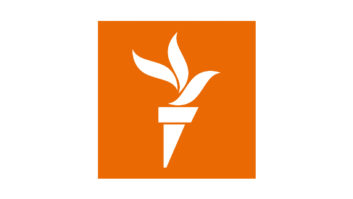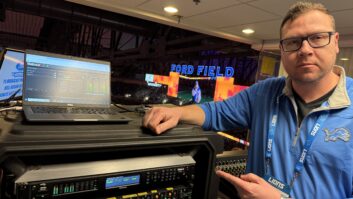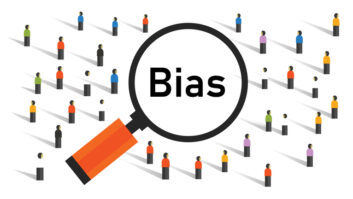Des Moines Classic Rocker Buys Naming Rights to Arena
Yankee Stadium. Lambeau Field. Madison Square Garden.
Stadium names used to be so simply elegant, evoking images of the teams or coaches who toiled in them, or pinpointing their locations so that anyone sitting in the arena’s clouds of cigar smoke would know precisely where he was.
In recent years it has become marketing chic for companies to attach their names to stadia of all sorts. Today, we’ve got American Airlines Arena, Conseco Fieldhouse and Lincoln Financial Field, among others.
Is it a new development? Not really, if you consider that Chicago’s Wrigley Field was renamed in the early 20th century after the chewing-gum magnate took ownership of the Cubs.
Is it an effective marketing strategy? It didn’t seem to help Enron (although it had other problems) or PSINet.
Annual deal
Now, joining the ranks of airlines, automakers, tech companies and financial institutions is KGGO(FM). In August, the Citadel-owned Des Moines classic rocker announced its very own naming-rights deal. A 3,500-seat venue previously known as Buccaneer Arena will be called 95KGGO Arena.
The facility, in a suburb just west of the Iowa capital city, is home to a minor league hockey team and various community hockey and skating activities for eight months out of the year.
“The idea came out of a brainstorming session with my operations manager, me and the head of the Des Moines Buccaneers hockey team,” said Terry Peters, vice president and market manager for the Citadel cluster. “They were looking for ways to make improvements on their facility, and we have a long-standing relationship with the Buccaneers.”
Buccaneers President and Owner Shawn Edwards said the deal provides his team with two things.
“It lets us really get our name out there because they have both country stations and the number one classic rock station. And the money will let us do some renovations to our 48-year-old building.”
In large markets with major league teams, naming-rights deals can involve multi-millions of dollars over a number of years. For instance, FedEx has invested more than $12 million for the rights to put the company’s name on the NFL’s Washington Redskins’ stadium and the home of the NBA’s Memphis Grizzlies. Those deals extend to 2025 and 2023 respectively.
The Des Moines deal is modest by those standards.
“I can tell you it’s a healthy six figures in what we’ve brought to the table in terms of cash, value, promotion,” said Peters. “They had what they thought they could go out and sell their naming rights for, and I had what I thought we could give them for those rights. What we ended up with was an annual deal that’s renewable.”
A Fleet deal
Significant among the renovations planned is a temporary floor that can cover the ice to turn the arena into a concert venue.
“We’ve got within the deal an opportunity to bring a series of rock, country and Spanish concerts to the 95KGGO Arena,” Peters said. “What we’ll have is the third-largest music and entertainment venue in the city.”
KGGO isn’t the first radio station to dabble in naming-rights deals. Entercom Boston’s WAAF(FM) picked up single-day naming rights to the Fleet Center. In that instance, the one-day rights were auctioned off with the money going to a charitable organization. The day the arena became the WAAFCenter coincided with a M”tley Cre concert presented in the facility by the station.
Even though two radio stations have dipped their toes into the naming-rights pool in the span of six months, that doesn’t necessarily indicate an emerging trend. Mark Ramsey, president of Mercury Radio Research, a strategic marketing research firm in San Diego, is more intrigued than impressed by the deal.
“KGGO’s in that kind of market that’s not too big to make it unaffordable and not to small to make it irrelevant. It’s an interesting deal, but I don’t know what the value is of having your name read over and over. I’m not sure whether it really motivates listenership,” he said.
“I think from a financial standpoint and from the standpoint of the radio station, being able to provide more perks to its clients and customers, the benefits are clear. What kind of marketing advantage it has for the station in the long run is less clear. That’s not news. That’s true of any such deal anywhere in any industry.”
The deal does present an interesting dilemma for competing stations in Des Moines. Whether it’s a hockey game or a concert, if another station chooses to promote it, will they also end up promoting KGGO by referring to the official name of the arena?
It’s a situation that isn’t lost on Peters, who moved to Des Moines in February after spending time working for Cox Enterprises and Westwood One in Tampa. There he witnessed the fits that the Tampa Tribune went through when the market’s competing daily newspaper, the St. Petersburg Times, bought the naming rights for the Tampa Bay Lightning’s hockey arena.
When asked if part of the strategy was having rival stations have to say his station’s name whenever they mentioned the arena, Peters chuckled. “I like promotion and I like being a dominant voice in my market. We’ve already caused some pain for our competitors.”
The “pain” to which Peters refers involved a Buccaneers coach’s show that was canceled by a Saga Communications station immediately after the naming-rights deal was announced.
“As soon as they saw we landed the naming rights to the arena, they called the Buccaneers and canceled the show,” Peters said. “Now we’re trying to retool and help the Buccaneers keep that live broadcast in place somehow.”
Ramsey downplays the “gotcha” impact the naming deal may for competitors, citing what happened in his own market.
“I don’t think it’s worth it to do the deal just to tweak your competitors. You’re certainly not going to encourage them to use your call letters on air. Here in San Diego we have Qualcomm Stadium. Now, it’s known as the ‘Q.’ The ‘Q’ doesn’t have the same association as Qualcomm Stadium. 95KGGOArena doesn’t exactly roll off the tongue.
“I would guess that within 90 days, it will be referred to as the ‘O.’ And when it’s called the ‘O,’ anyone at any station can say, ‘Playing down at the “O” this week …’ It becomes vernacularized, and that’s the end of that. Problem solved from a competitive radio standpoint.”





